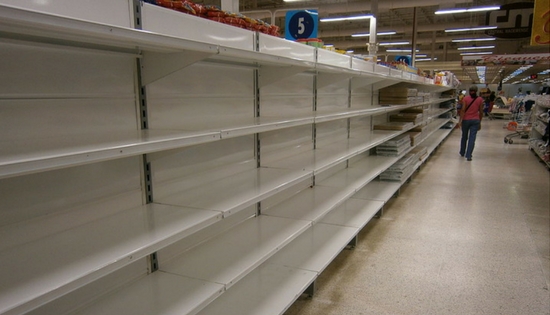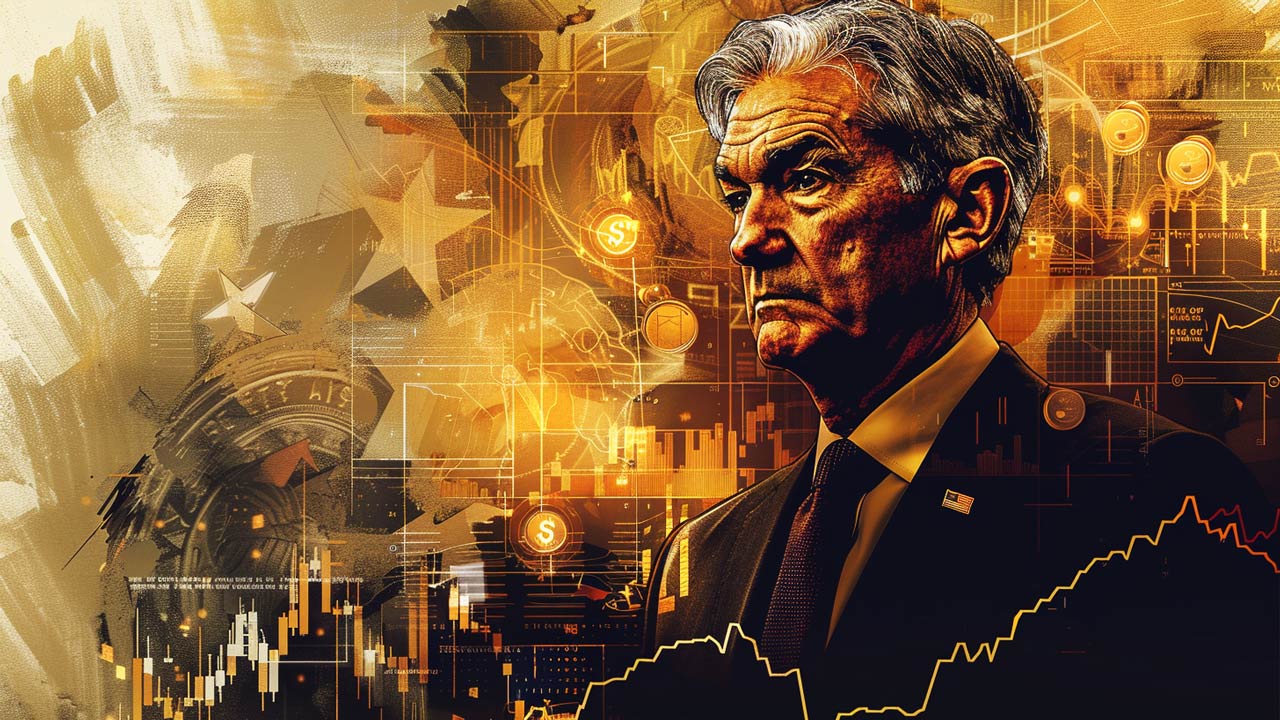Venezuelans Are Awash in Cash with Nothing to Buy
The people of Venezuela are currently suffering from triple-digit inflation and their bolívar fuerte (“strong bolívar”) currency isn’t worth 0.10 US cents at the moment, according to Bloomberg. As the country approaches hyperinflation levels, buying everyday items (when available) takes so many bank notes businesses have abandoned counting and starting weighing money instead. Boxes and bags of bills are becoming a nuisance to shop owners who have to find places to store the currency.

Venezuela’s real inflation rate is shrouded in mystery, given that the government rarely releases any official numbers. Some estimates have it between 200% to 1,500%.
The Venezuelan government is scrambling to find a practical solution, asking private currency companies to expedite orders for larger denominations before the Christmas season brings employee bonuses, ATM withdrawals, and increased commerce.
Exacerbating the situation is that 40% of Venezuelans have no bank accounts and a third of workers are paid in cash. With so much currency being stirred about the country, it would seem like getting cash would be fairly easy, but that’s not the situation. In fact, the Venezuela’s central bank released a study showing a decrease in overall ATMs available. The bank machines that once were stocked every few days are now being replenished with replacement bolívars every few hours to meet demand.
Venezuela’s inflation is a good cautionary tale. It’s a story whose moral puts most of the blame on bad monetary policies, currency depreciation, and regulation of the free market. In 2013, the government depreciated its currency to a third of the original value in order to lower export costs and strengthen domestic business. In turn, increased taxes would help the Venezuelan government narrow a budget shortfall.
By making imports more expensive, the government motivated consumers to buy domestic products. However, it also ensured the country was exporting more and importing less, which reduced the supply of products to buy while simultaneously increasing the quantity of money consumers had to purchase them. Currency devaluation may appear to protected domestic businesses, which feel less pressure to compete, but it also increases material costs, with the net result being reduced production. As the supply of goods falls while the supply of currency to bid for them rises, prices have nowhere to go but up.
Devaluing the strong bolívar against the dollar has halted the import of many products the Venezuelan people depend on to live. US manufacturers have little incentive to trade against such a devalued currency. It’s also helped drive the US dollar out of the country altogether, which has also lead to product shortages in basics like toilet paper, rice, and coffee.
In the country’s 2012 presidential election, the government ramped up spending to influence voters just before the Hugo Chávez victory. Although the spending grew the economy by 5%, the outlay increased the budget shortfall by 8% to 17%.
The US is facing many of the same ills as Venezuela, from a devalued currency through low interest rates to the manipulation of economic numbers during an election. Currencies not backed by gold are susceptible to artificial manipulation by governments and central banks. Retaining your personal wealth means investing part of your portfolio in something physical, like buying gold and silver.

Get Peter Schiff’s latest gold market analysis – click here – for a free subscription to his exclusive weekly email updates.
Interested in learning how to buy gold and buy silver?
Call 1-888-GOLD-160 and speak with a Precious Metals Specialist today!



 Since Nayib Bukele became president of El Salvador, El Salvador has been in American media and global political discussion more than ever. While much of the attention focuses on Bukele’s mass incarceration of gang members and a decline in homicide of over 70%, Bukele has also drawn attention to his favoritism towards Bitcoin and how he […]
Since Nayib Bukele became president of El Salvador, El Salvador has been in American media and global political discussion more than ever. While much of the attention focuses on Bukele’s mass incarceration of gang members and a decline in homicide of over 70%, Bukele has also drawn attention to his favoritism towards Bitcoin and how he […] With gold hitting yet another awe-inspiring all-time high in the wake of Powell’s remarks reassuring markets (more or less) to expect rate cuts in 2024, a few analysts are pointing out risk factors for a correction — so is there really still room to run?
With gold hitting yet another awe-inspiring all-time high in the wake of Powell’s remarks reassuring markets (more or less) to expect rate cuts in 2024, a few analysts are pointing out risk factors for a correction — so is there really still room to run? Gold hit a new all-time nominal high, surpassing the previous record set in December of the previous year. The precious metal’s price reached approximately $2,140, indicating a robust and continuing interest in gold as a safe-haven asset, despite a rather peculiar lack of fanfare from the media and retail investors. This latest peak in gold […]
Gold hit a new all-time nominal high, surpassing the previous record set in December of the previous year. The precious metal’s price reached approximately $2,140, indicating a robust and continuing interest in gold as a safe-haven asset, despite a rather peculiar lack of fanfare from the media and retail investors. This latest peak in gold […] The gold price has been surging, with unprecedented central bank demand gobbling up supply. It has been a force to behold — especially as US monetary policy has been relatively tight since 2022, and 10-year Treasury yields have rocketed up, which generally puts firm downward pressure on gold against USD.
The gold price has been surging, with unprecedented central bank demand gobbling up supply. It has been a force to behold — especially as US monetary policy has been relatively tight since 2022, and 10-year Treasury yields have rocketed up, which generally puts firm downward pressure on gold against USD.  Total gold demand hit an all-time high in 2023, according to a recent report released by the World Gold Council. Last week, the World Gold Council (WGC) released its Gold Demand Trends report, which tracks developments in the demand for and use of gold around the world. Excluding over-the-counter (OTC) trade, 2023 gold demand fell slightly from 2022 […]
Total gold demand hit an all-time high in 2023, according to a recent report released by the World Gold Council. Last week, the World Gold Council (WGC) released its Gold Demand Trends report, which tracks developments in the demand for and use of gold around the world. Excluding over-the-counter (OTC) trade, 2023 gold demand fell slightly from 2022 […]